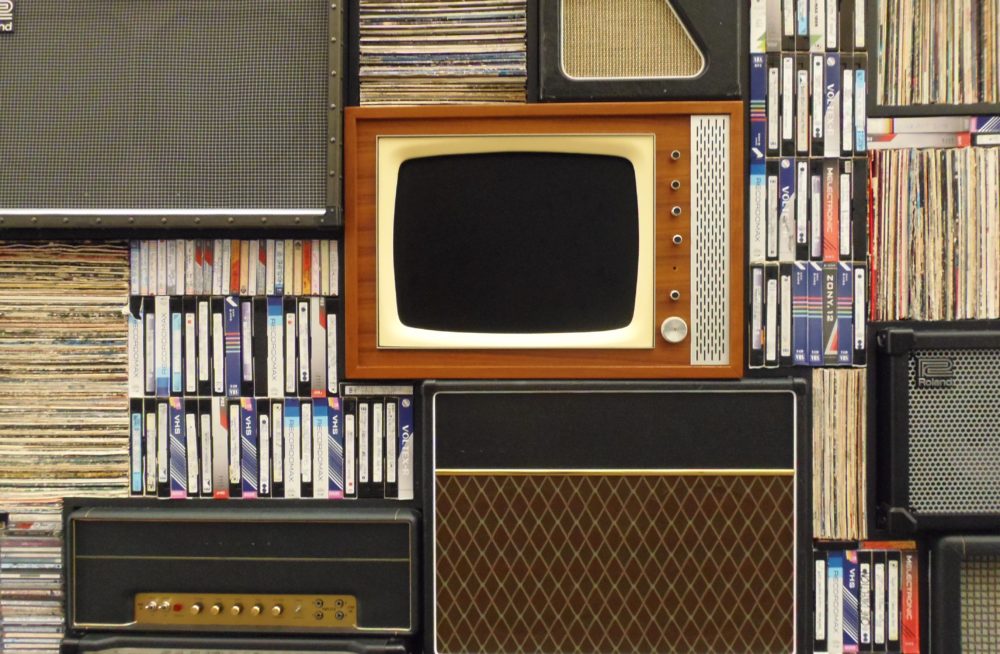In my last post on wisdom, I shared an easy, accessible way to practice wisdom: read wise words daily. Today, I want to talk about the second step of that practice: be mindful of your media diet.
This second step is harder, and usually met with more resistance. We like to think we can have our daily wisdom words and our cake, too. But in the media-saturated world in which we live, we can’t afford to be frivolous or unaware of what scrolls before our eyes every day. If we want to live awakened, that means opening our eyes to what we see, watch, read, and hear- and then deciding whether those align with the person we want to become.
Wisdom is not just an act of addition; more often it’s the work of subtraction. It’s taking away the barriers that hinder us from seeing rightly. It’s noticing what brings cloudiness rather than clarity.
About seven years ago, I decided to stop reading magazines like People, Us Weekly, etc. I’m going to share why as an example of my own process of discerning wisdom, not as a judgment on what your own reading habits are. I was serving as a pastor at the time, and honestly, reading about famous people I didn’t know whose problems I didn’t worry about felt like a welcome relief from the intensity and deep level of care I offered in my own job. Many of my friends are in helping professions, and this seems to be common. We have to balance out our day jobs with some frivolity. That’s good and wise work. (I still do this; I watch really, really stupid TV shows when my brain needs a night off.)
But one day, I realized that for me, using the magazine as a proxy to be a less-invested human felt wrong. By reading the pages of this magazine, I was being the exact kind of person I didn’t want to be- callous to the needs of others, indulging in gossip of people whose stories I didn’t know first-hand, judging people from a distance. Not to mention all the layers of consumerism, false narratives about beauty, and the worship of fame and fortune. I was sitting in a tea shop, reading this magazine, and in one moment it became so clear to me how counter-productive this was to the way I sought to live my life.
And just like that, I didn’t want to have anything to do with it anymore. I just don’t want to spend one second of my life reinforcing notions in my head of he said/she said drama, fabricated narratives of female competition, and (my least favorite) competitions of “who wore it best.” In a moment, those magazines went from welcome relief to unwanted noise.
I share this example because it reveals something about the process of discerning a healthy media diet- we often overlook so much of what we’re taking in. We don’t register things that are definitely influencing the way we interact with the world. We see media as almost invisible, or at least value-neutral, when that couldn’t be further from the truth.
Everything we receive affects how we perceive.
Every podcast, every song, every tv series and movie and documentary and article and tweet affects how we see the world, and consequently how we live in it.
You can’t control all the voices out there, but you can try to create a media diet for yourself that is as healthy as possible. You do have some control over the input.
One last personal anecdote I’ll share is how I’ve changed the way I get the news, because the news is such a prime example of the complexity of creating a mindful media diet. I found that television (and video in general) tends to rile me up and make me feel angry. It’s often designed to be sensationalist and argumentative, and I can feel that when I watch. So since 2016, with rare exceptions, I only read the news. I don’t watch. I don’t often listen.
Reading the news, I discovered, doesn’t whip me into a frenzy as quickly or as often, but it still allows me to be informed and respond as needed. I can use my anger for good, rather than allow it to become a distraction. I can channel my frustration into action, rather than self-righteousness.
I’m reminded of a scripture verse that says that while everything is permitted, not everything is beneficial. Wisdom is recognizing the difference. It’s noticing what in your media diet is not serving you. I’m not here to tell you what that is, but I encourage you to give it some thought.
If you want to take an inventory of your media diet, consider these factors:
- how often you use it (If you want to track usage on your phone, Moment is a great app.)
- what you’re ingesting, and how it affects you
- honestly consider how you are using media to avoid unpleasantness in your life- emotions, situations, world events. In what ways are you allowing media to keep you from doing the work?
- notice how who you follow and what you say on social media forms you into the person you are becoming, for better and worse
- ask whether the media you consume (and support with your attention) aligns with the values you want to uphold
I’m not sure what a healthy media diet looks like for you, particularly. But I trust we all can find a few things to cut from our media stream that would be beneficial. And I know we all could shave some time off our media consumption.
So this week, in addition to putting wise words before you daily, consider taking away some unwise words. Take away some unfruitful noise. Seek wisdom as you seek to become mindful of your media diet.




